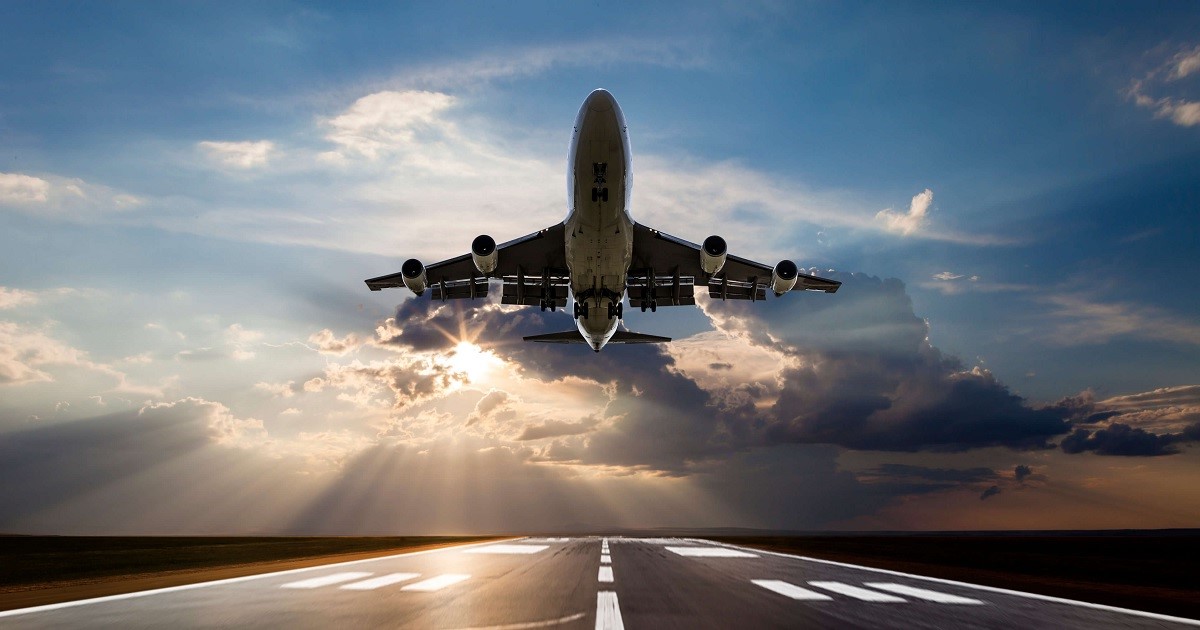
Ever wondered how airlines get you to choose their flights over others? Airline marketing is a fascinating blend of psychology, technology, and strategy. From catchy slogans to loyalty programs, airlines use a variety of tactics to grab your attention and keep you coming back. Did you know that some airlines even use data from your social media to tailor their ads? It's true! They track your preferences and habits to offer deals that seem almost too perfect to pass up. But that's just the tip of the iceberg. In this post, we'll dive into 14 intriguing facts about airline marketing that will make you see your next flight in a whole new light. Buckle up and get ready for takeoff!
Key Takeaways:
- Loyalty programs, like frequent flyer miles and tiered membership levels, keep customers coming back to airlines for exclusive perks and benefits, fostering a sense of loyalty and retention.
- Social media is a powerful tool for airlines to provide real-time updates, handle customer service, run promotional campaigns, and build a community through user-generated content, enhancing customer engagement and satisfaction.
The Power of Airline Loyalty Programs
Airline marketing has evolved significantly over the years. One of the most effective strategies airlines use to retain customers is through loyalty programs. These programs offer various perks and benefits to frequent flyers, encouraging them to stick with a particular airline.
- Frequent Flyer Miles: Airlines reward loyal customers with miles for every flight taken. These miles can be redeemed for free flights, upgrades, or other rewards.
- Tiered Membership Levels: Many airlines have tiered membership levels, such as Silver, Gold, and Platinum. Higher tiers offer more benefits, like priority boarding and access to exclusive lounges.
- Partnerships with Other Companies: Airlines often partner with hotels, car rental companies, and credit card companies to offer additional ways to earn and redeem miles.
- Exclusive Events: Some airlines host exclusive events for their top-tier members, such as private concerts or special tours.
The Role of Social Media in Airline Marketing
Social media has become a crucial tool for airlines to engage with customers, promote their services, and handle customer service issues. Platforms like Twitter, Facebook, and Instagram allow airlines to reach a broad audience quickly.
- Real-Time Updates: Airlines use social media to provide real-time updates on flight status, delays, and gate changes.
- Customer Service: Many airlines have dedicated social media teams to handle customer inquiries and complaints, often resolving issues faster than traditional methods.
- Promotional Campaigns: Airlines run promotional campaigns on social media, offering discounts and special deals to followers.
- User-Generated Content: Encouraging passengers to share their travel experiences on social media helps airlines build a community and create authentic content.
The Importance of In-Flight Experience
The in-flight experience is a critical aspect of airline marketing. A comfortable and enjoyable flight can turn a one-time passenger into a loyal customer.
- In-Flight Entertainment: Offering a variety of movies, TV shows, and music helps keep passengers entertained during long flights.
- Comfortable Seating: Airlines invest in comfortable seating, including options for extra legroom and lie-flat seats in business and first class.
- Quality Meals: Providing high-quality meals and snacks can significantly enhance the in-flight experience. Some airlines even offer special menus created by renowned chefs.
- Wi-Fi Access: Offering Wi-Fi access allows passengers to stay connected and productive during their flight.
The Impact of Branding and Advertising
Branding and advertising play a significant role in how airlines attract and retain customers. A strong brand identity and effective advertising campaigns can set an airline apart from its competitors.
- Memorable Slogans: Catchy slogans help airlines create a memorable brand image. For example, Emirates' "Fly Better" and Delta's "Keep Climbing" resonate with travelers.
- Iconic Logos and Liveries: A distinctive logo and aircraft livery make an airline easily recognizable. Think of the Qantas kangaroo or the British Airways Union Jack tail design.
Final Takeaways on Airline Marketing
Airline marketing is a fascinating mix of strategy, psychology, and technology. From loyalty programs that keep customers coming back to dynamic pricing that maximizes revenue, airlines use a variety of tactics to stay competitive. Social media campaigns and influencer partnerships help build brand awareness, while personalized offers and targeted ads cater to individual preferences. Sustainability initiatives are also gaining traction, appealing to eco-conscious travelers. Understanding these strategies can give you a deeper appreciation for the industry and maybe even help you snag a better deal on your next flight. So next time you book a ticket, remember there's a lot more going on behind the scenes than just getting you from point A to point B. Happy travels!
Frequently Asked Questions
Was this page helpful?
Our commitment to delivering trustworthy and engaging content is at the heart of what we do. Each fact on our site is contributed by real users like you, bringing a wealth of diverse insights and information. To ensure the highest standards of accuracy and reliability, our dedicated editors meticulously review each submission. This process guarantees that the facts we share are not only fascinating but also credible. Trust in our commitment to quality and authenticity as you explore and learn with us.


